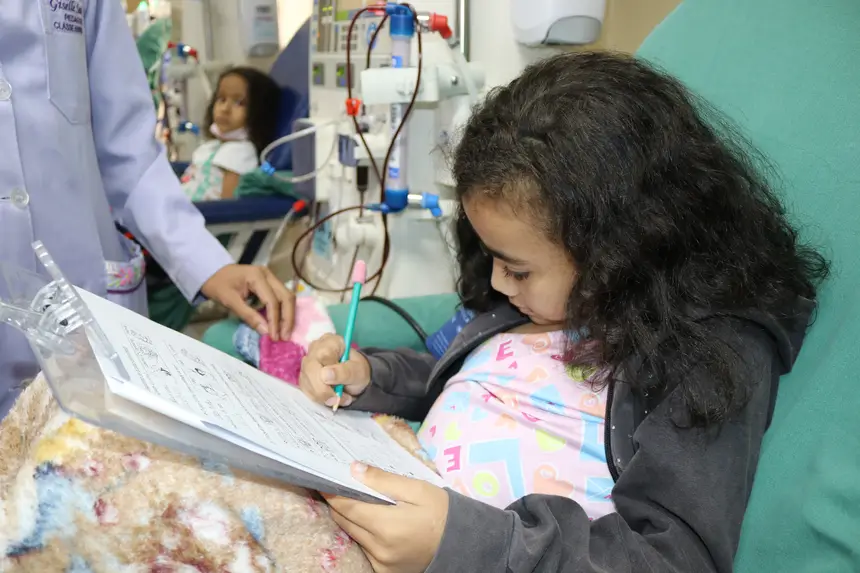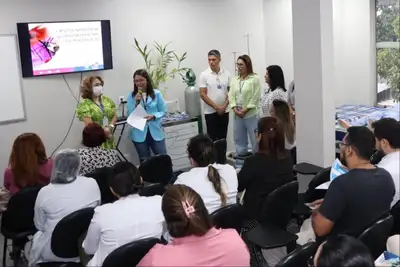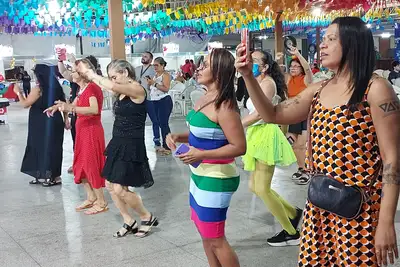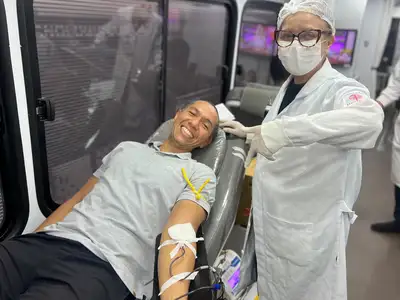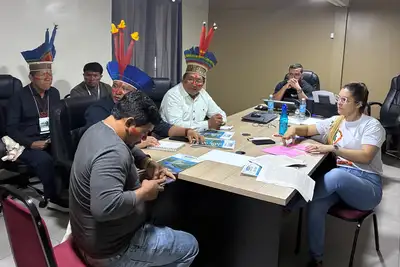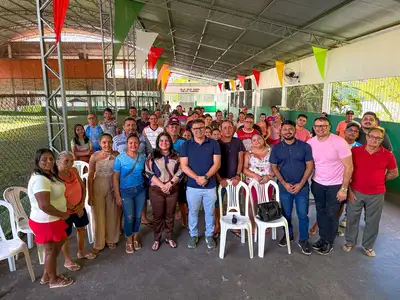Santa Casa do Pará is a teaching center in the health area in the Amazon
The three-century-old institution relies on the dedicated work of dozens of teachers who qualify professionals for patient care
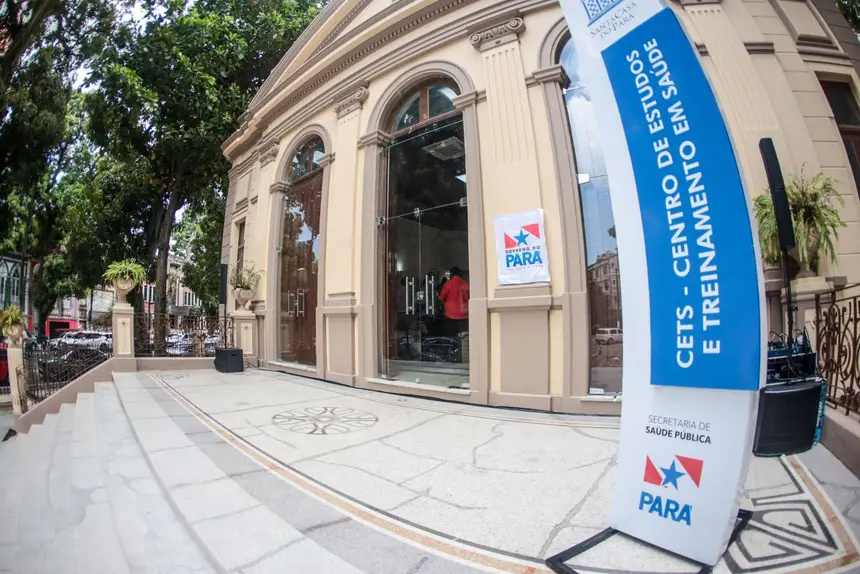
Recognized for its excellence in maternal and child care, the Santa Casa de Misericórdia do Pará, founded on February 24, 1650, is one of the oldest health institutions in Brazil, pioneering health assistance in the Amazon. The institution plays a fundamental role in reducing infant and maternal mortality and in training highly qualified health professionals.
The Santa Casa do Pará started its medical residency program in pediatrics in 1977, establishing itself as one of the main centers for training pediatricians in Brazil. To date, more than 200 specialists have been trained in the program, which is a pioneer in the North of the country, adopting a three-year curriculum that ensures greater depth in the competencies required by pediatric practice.
Ana Cláudia, who was a resident from 2003 to 2005 and is now a preceptor in pediatrics, reports that life is a constant learning experience. "We learn from our residents and we also teach them things that they learn in a general way, in medicine. In pediatrics, they will have a focus on the baby, on the child, with their specificities, with their particularities. And we see a lot of this in their area of knowledge as well," she details.
Rosilene Gonçalves, a pedagogue from the Teaching Coordination of the Santa Casa Foundation, reports the relevance of the institution as a setting for future teachers. "As a teacher at Uepa [State University of Pará], I supervise the internship in Hospital Pedagogy for pedagogy students at the University. Each semester, we provide internships for ten pedagogy students. They have the opportunity to experience didactic-pedagogical experiences in the Hospital Class, which favor their training process and teaching identity for acting in different educational contexts, including the hospital context," she explains.
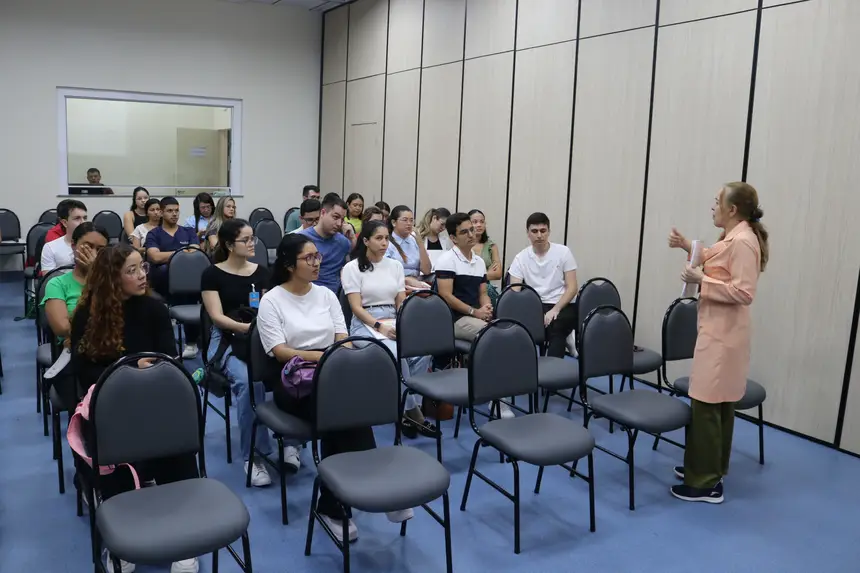
The Santa Casa Foundation, over the past few years, has been fundamental for the training of professionals in the health area. In addition to being a hospital, it is a school that enhances professionals for the job market. Érica Cavalcante, director of Teaching, Research, and Extension (Depe), emphasizes that teaching and research are fundamental pillars for the development of a hospital, as they significantly contribute to improving the quality of health services, innovation in treatments, and continuous improvement of professionals.
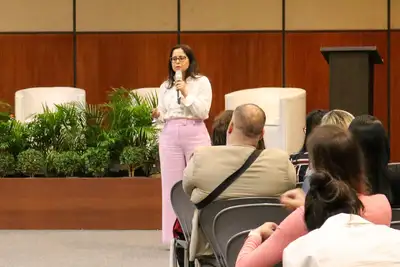
"Teaching and research are part of our institution's mission, which is to care for people by generating knowledge. We have received great support from the current management of Santa Casa, as well as from the state government for the advancement of teaching and research in the institution," she observes. Érica Cavalcante highlights that hospitals with teaching and research programs tend to attract highly qualified professionals interested in academic development. "These environments promote continuous training, making the team better prepared to deal with the various complexities of clinical cases," she emphasizes.
Qualification in Teaching - Valéria dos Santos, coordinator of the master's course, the Graduate Program in Management and Health of the Amazon at the Santa Casa Foundation of Pará, informs that 18 teachers work in the master's program. "The course plays an essential role in strengthening the health system of our Amazon region, focusing on teaching, research, and extension aimed at both health management and assistance," she emphasizes.
For Aureni de Araújo, coordinator of the multiprofessional residency program at the Santa Casa Foundation, the preceptors are the pillars of the multiprofessional residency in health at the institution. "Without them, our residents would not have all the necessary knowledge tools to build their professional profiles," she summarizes.
"The preceptors from various categories, nutrition, physiotherapy, pharmacy, nursing, social work, psychology, and occupational therapy, are responsible for the theoretical and practical teachings in the learning axes. Competencies and development of skills for a committed resident with the patient and professionalism. We must thank all the preceptors of the multiprofessional residency in Women's and Children's Health Care," Aureni concludes.
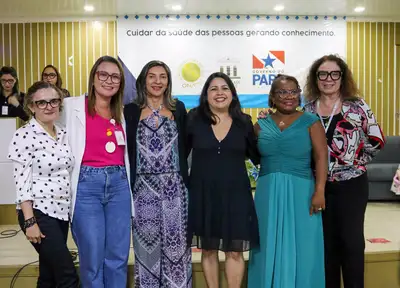
The director of the Technical Assistance area of the Santa Casa Foundation, Norma Assunção, believes that the extensive training offered by the institution contributes to health assistance for the hospital itself and for society as a whole, during and after the specializations.
"Training these people is truly delivering qualified professionals to society for the care of our population and also enabling these people to potentially become professionals in our institution, welcomed by the institution that trained them. So, Santa Casa can be training our next professionals and possible managers, ensuring the population a dignified, qualified, and safe health assistance condition," points out the director.
Hospital Class - Rosilene Gonçalves, a pedagogue from the Santa Casa Foundation, reports that ten teachers and one coordinator from the Hospital Class of the State Department of Education (Seduc) work at Santa Casa in the areas of hemodialysis and pediatrics, in addition to the Welcoming Space. The institution has had a technical cooperation agreement with Seduc since 2009.
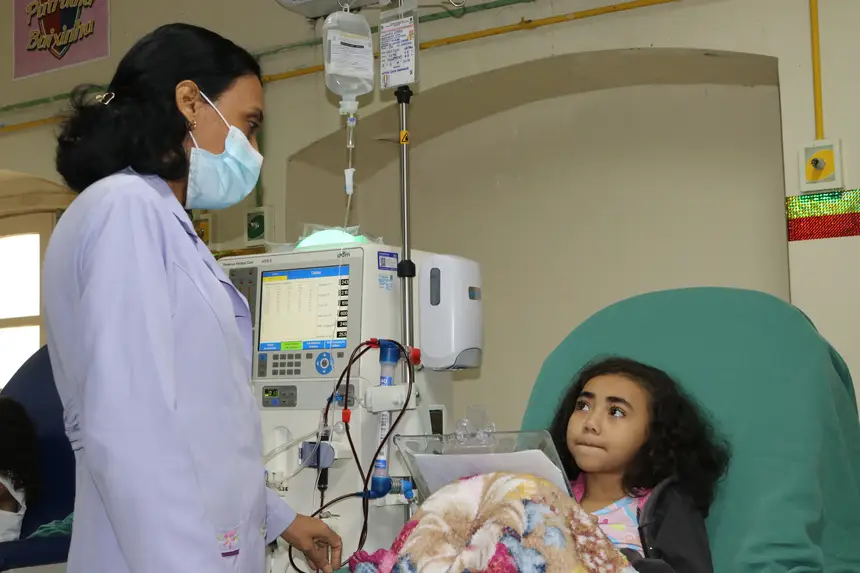
"They work with the schooling process of hospitalized children, ensuring the continuity of studies, contributing to humanization and preventing school dropout. In addition, we have a professional from the hospital who acts as a pedagogue and teacher in pediatrics developing playful-pedagogical activities. I work on monitoring the pedagogical actions of the Hospital Class, as they are linked to the Teaching Coordination of the Santa Casa Foundation," she concludes.



